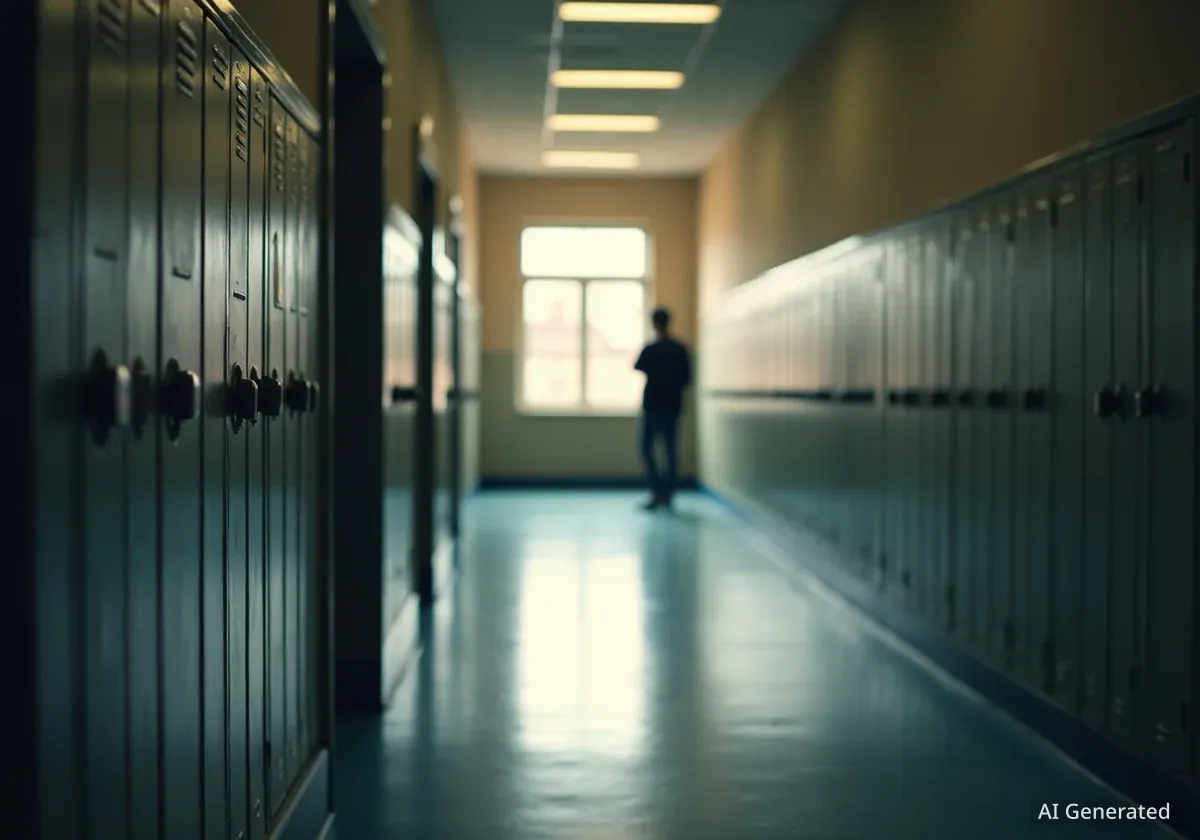Students suing the Lawrence school district over the use of surveillance software have introduced new allegations in court, claiming school officials retaliated against them for attempting to report on the legal challenge. The original lawsuit targets the district's use of Gaggle, a monitoring tool that students argue violates their constitutional rights through constant digital surveillance.
Key Takeaways
- Students in Lawrence, Kansas, are suing the school district over its use of Gaggle, a software that monitors their digital communications.
- The lawsuit claims the software violates First and Fourth Amendment rights by conducting round-the-clock surveillance.
- A new court filing alleges district staff retaliated by pressuring student journalists not to cover the lawsuit and hinting at negative consequences for their advisor.
- The school district denies restricting speech and states the software is a necessary tool for student safety, intended to prevent self-harm and violence.
Details of the Surveillance Software Lawsuit
The legal conflict began when students from Lawrence High School and Lawrence Free State High School filed a lawsuit against the Lawrence Board of Education. The suit challenges the district's implementation of Gaggle, a monitoring service introduced in November 2023.
The software scans student emails, documents, and other files stored on school-issued devices and accounts. The district maintains that its purpose is to identify and prevent potential harm, including threats of violence, self-harm, and exploitation.
However, the students contend that the software constitutes an unlawful search and an invasion of privacy. Their lawsuit argues that this continuous monitoring violates their Fourth Amendment rights against unreasonable searches and their First Amendment rights to free speech and a free press.
What is Gaggle?
Gaggle is a third-party service used by school districts across the country to monitor student activity on school-provided digital platforms like Google Workspace and Microsoft 365. It uses artificial intelligence and human content moderators to flag keywords and images related to safety concerns, which are then reported to school administrators.
New Allegations of Retaliation Emerge
The case has intensified with recent claims of retaliation. According to a September court filing, students allege that after the lawsuit was filed, district staff took steps to suppress coverage of the issue by the student newspapers.
The filing claims administrators implied that the student journalism advisor could face adverse employment actions if students published articles about the ongoing legal battle. This prompted the students to seek a preliminary injunction from a judge to protect their right to report and to safeguard their advisor's job status.
“...What went on here was… a chilling of free speech,” said Harrison Rosenthal, the lead attorney for the students. “After that, the principal directed the student journalism advisor not to report on the lawsuit. My client called me from class saying, ‘This sounds very odd, this is a problem.’ I said, ‘Yeah, it’s a real problem.’”
The students are asking the court to issue an order that would prevent the district from interfering with their reporting and would formalize protections for their advisor.
The District's Position on the Claims
The Lawrence school district has denied any wrongdoing. In its own court filings, the district states that staff provided written assurance to students that they were free to report on the lawsuit. It also claims it promised that no negative action would be taken against the advisor for students' lawful reporting.
Alan Rupe, an attorney for the Lawrence Board of Education, stated that the board never intended to infringe upon students' constitutional rights. “Defendants implemented Gaggle as a relatively non-invasive method for monitoring students for threats of violence, self-harm, sexual exploitation, and other serious harms,” Rupe explained.
The district argues that because it has already granted permission to publish, an injunction is unnecessary as there is no ongoing harm. However, the students' legal team counters that a formal court order is needed to ensure these protections are binding.
How the Software Impacted Student Work
Beyond the constitutional questions, student journalists claim the Gaggle software actively interfered with their ability to do their work. The lawsuit provides several specific examples of disruption affecting students at both high schools.
Reported issues with the Gaggle software include:
- Deletion of Journalistic Materials: Drafts of articles, emails to sources, and collaborative documents for the student newspapers were allegedly flagged and deleted.
- Interference with School Assignments: The software reportedly deleted student schoolwork unrelated to journalism.
- False Positive Flags: In one instance, an art student's photography project was allegedly misidentified by the software as “child pornography.”
- Blocked Mental Health Communications: An email sent by a student as part of a report on mental health resources, simulating a student in crisis, was blocked by Gaggle and never reached the intended teacher.
These incidents, the students argue, demonstrate that the software is not only invasive but also ineffective and sometimes counterproductive to ensuring student well-being.
Contract Details
The Lawrence school district's agreement with Gaggle is a three-year contract valued at $160,000. The current contract was extended and is set to run through July 31, 2026.
Broader Constitutional Questions at Stake
This case highlights a growing national debate over student privacy and the use of technology in schools. According to the Student Press Law Center (SPLC), which advised the Lawrence students, the situation raises significant legal questions.
Jonathan Falk, an SPLC staff attorney, noted that the case is unusual because it challenges a system that searches student files without any specific suspicion of wrongdoing. This differs from traditional school search cases, which typically require at least reasonable suspicion.
Kansas has strong legal protections for student journalists under the Kansas Student Publications Act, which extends First Amendment protections to student press. Rosenthal, the students' attorney, believes this case could set a precedent for digital privacy rights as schools adopt more sophisticated AI-powered monitoring tools.
“It’s a pure Fourth Amendment violation, and I have not seen any other case like this in the country,” Rosenthal said. He added that the issue will likely become more common as AI technology develops.
The district, meanwhile, cites federal laws like the Children’s Internet Protection Act as part of its legal obligation to monitor school-issued devices for harmful content. The outcome of the lawsuit will likely have significant implications for how schools balance student safety with their constitutional rights in the digital age.





